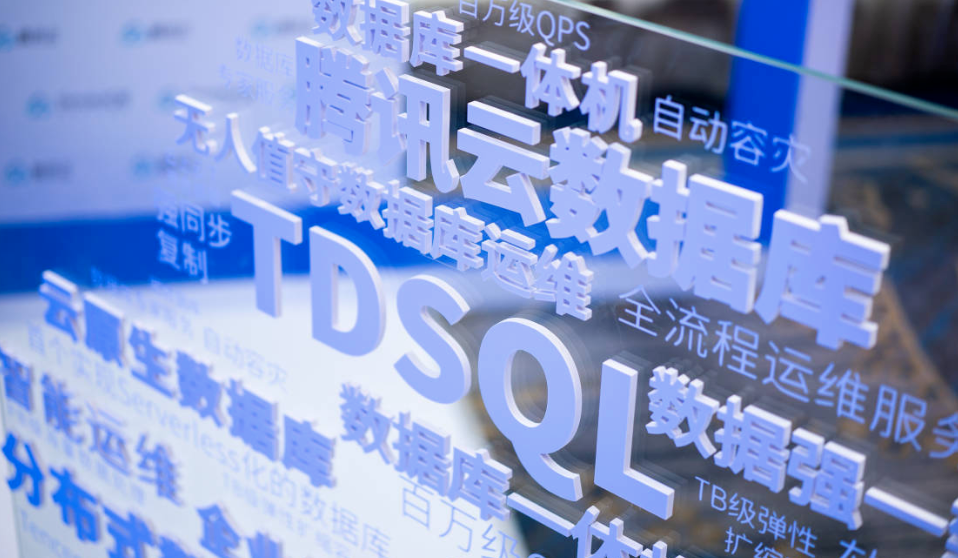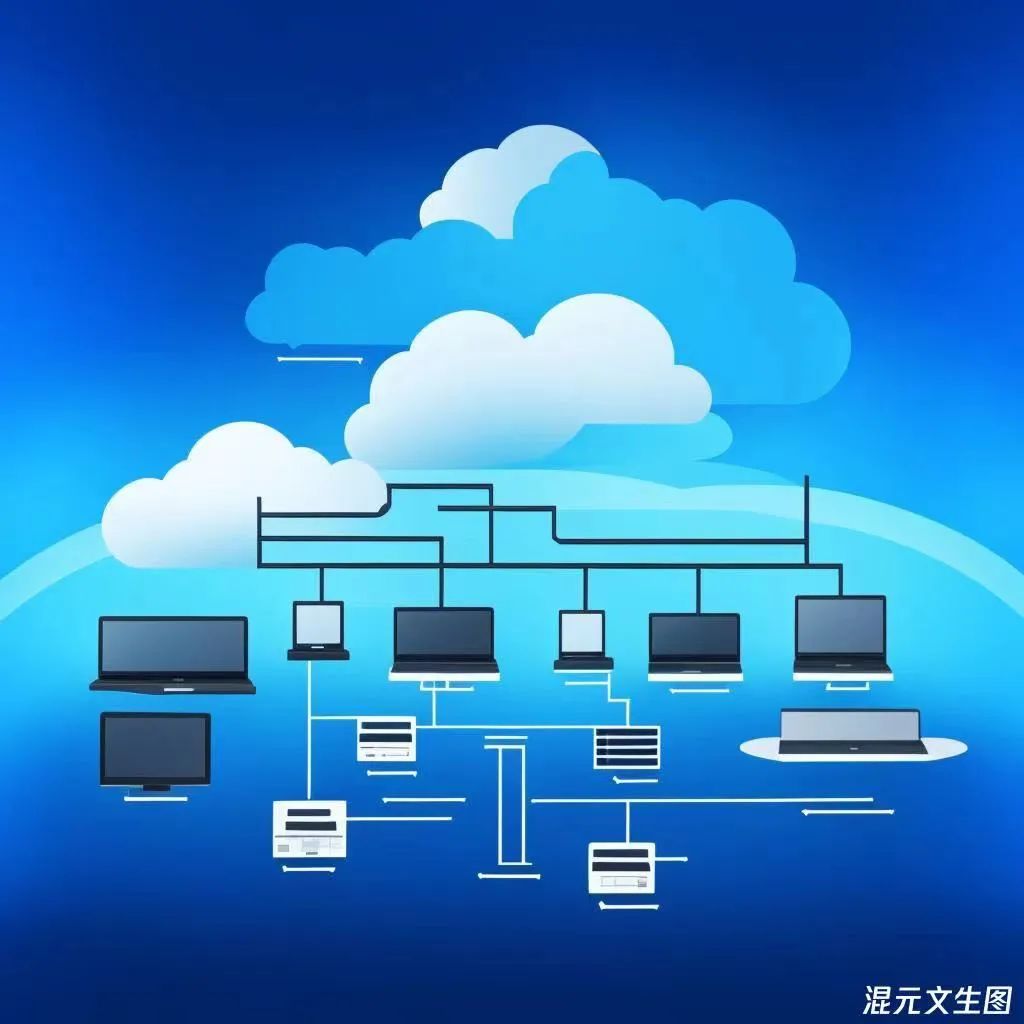
From edge systems to core systems, and from key industries to industry-wide applications, the domestic software industry represented by databases is ushering in a period of rapid development.
According to the latest report released by IDC, among the top five in China's relational database market, the total share of local manufacturers has increased from 27.1% in 2018 to 55.4% in 2022; conversely, the total share of the top five international manufacturers has increased from 57.3% in 2018. % dropped to 27.3% in 2022.
The data of one increase and one decrease shows that domestic database products are accepted by an increasingly wide range of customers and are replacing existing databases in key industries and enterprise core systems.
Not only databases, but also basic software including operating systems, cloud platforms, middleware, and various PaaS products are accelerating localization. Among them, Internet companies play a key role. They start from their own massive business scenarios and copy these successful experiences to external customers.
Massive demand forces self-sufficiency
The development of domestic databases is not too late. As early as March 1986, China’s “863 Plan”, which focused on basic scientific research projects, was released. The database was one of the “major special projects”, and universities and scientific research institutions took the lead in carrying out technological breakthroughs.
However, in comparison, Oracle, the leading company in the global database industry, has been established and officially entered the Chinese market in 1989. Commercial databases represented by Oracle and IBM have occupied the global market, including the Chinese market, with their stable technology and strong ecology.
In 2008, Oracle's market share in China reached nearly 50%, reaching its peak. But the gears of fate began to turn, and a turning point began in the dark. This year, the number of Internet users in China reached 253 million, and the number of broadband Internet users reached 214 million, surpassing the United States for the first time and ranking first in the world.
The booming development of China's Internet application market will soon usher in a turnaround for domestic software. Social networking, e-commerce, search, video and other applications are flourishing. The explosion of users has brought high concurrency requirements. However, expensive overseas commercial databases can no longer meet the demand. Distributed databases running on X86 servers have begun to emerge.
Take Tencent as an example. In 2007, Tencent launched its self-developed distributed database TDSQL to support the Q-coin trading system. It was subsequently expanded to include national-level applications such as WeChat Pay, Tencent Video, Tencent Music, Tencent Conference, and Honor of Kings. The internal business needs of enterprises provide natural soil for domestic Internet companies to develop products such as databases.

The distributed cloud database developed by Internet companies shows many advantages over traditional centralized databases. First of all, the iteration speed of centralized databases is slow, which may be calculated on a monthly or weekly basis, but the iteration speed of cloud database products can be calculated on a daily basis; secondly, when dealing with ultra-high concurrency requirements, distributed databases can be deployed more quickly Undertake it, and the cost is absolutely advantageous. The most important thing is that domestic database companies have solved the problem of lack of product verification through trials in their own scenarios. During the incubation process of Tencent TDSQL, the Q-coin trading system was comparable to a bank-level account system. It could not make any mistakes, and it played a key role in polishing the early products.
In 2014, Tencent took WeBank, China's first Internet bank, as its first benchmark, laying a mature financial-grade service foundation. Subsequently, in its cooperation with Zhangjiagang Bank, Tencent Cloud migrated the core system of a domestic traditional bank to a domestic database for the first time.
Currently, Tencent Cloud TDSQL has served 7 of the top 10 domestic banks and more than half of the top 20 banks. Based on the distributed core database base of Tencent Cloud Database TDSQL, during the core system transformation of a large state-owned bank, the cost was saved by 100 million after switching from Oracle to TDSQL.
In addition to Tencent, many Internet companies have also joined the competition in the database industry, trying to "overtake" traditional centralized databases on the track of cloud databases and distributed databases. The same is true in overseas markets. Cloud databases developed by companies such as Microsoft and AWS are gradually eroding the market share of the traditional database industry.
In the process of moving from edge systems to core systems and from key industries to industry-wide applications, the rise of domestic software is due to technical strength. In many technical hard indicators, China's database capabilities have reached the world's leading level. At the end of March 2023, Tencent Cloud Database TDSQL ranked first on the list of the Transaction Processing Performance Council (TPC), an authoritative evaluation agency, with a processing capacity of 814 million transactions per minute. This marks a new breakthrough in domestic database technology.
Basic software collective breakthrough
The rise of self-developed basic software similar to databases is not an isolated case.
In government and enterprise industries that require more independent innovation, in the past they mainly built private clouds based on foreign VMware. However, the traditional IT architecture has low utilization rate of computing power and storage resources, and long response cycle to business resource demand, and cannot meet the needs of enterprises for cloudification and cloud-native transformation of IT infrastructure.
The development of domestic cloud service technology provides very good solutions. For example, the architecture created by Tencent's private cloud provides customers with public cloud capabilities at a 1:1 ratio. Before these capabilities are applied to private cloud customers, they have already experienced the test of millions of users on the public cloud, and the failure rate is higher than Private cloud has fewer architectures and has the natural advantages of cloud services - on-demand allocation, maximum resource utilization, and quick response to demand.
Currently, a large number of large financial institutions such as China Construction Bank, PICC, and China UnionPay, as well as large industrial enterprises like Fii, operate their digital businesses on Tencent’s proprietary cloud. Based on Tencent's TCE enterprise proprietary cloud solution, Fii Industrial quickly built an industrial Internet platform in a very short time. This not only promoted Fii's internal business systems as a whole to the cloud, but also optimized the efficiency of system allocation and scheduling of resources. At the same time, we export our digital experience to the industry.
The operating system, known as the "Pearl of Industry", is also making efforts. It is not difficult to make a usable operating system. What is difficult is to make this operating system used by more scenarios and more people. Based on its many years of research and development practice, Tencent's server operating system has also gone through the process of purchasing a commercial version of the operating system, then developing its own TencentOS Server operating system, donating the core technology, and co-building the OpenCloudOS domestic open source operating system.

TencentOS Server has been developed since 2010. It embodies Tencent’s more than 10 years of technical accumulation in the field of operating systems and has been verified and polished by Tencent’s massive internal business for many years. It covers all Tencent’s businesses; relying on Tencent’s social networking, games, and financial payments , AI, security and other businesses, its core capabilities such as stability, security, compatibility and performance can be further honed.
So far, the OpenCloudOS operating system has supported X86_64, ARM64, and RISC-V architectures, and is fully compatible with chips such as LoongArch, Feiteng, Haiguang, Zhaoxin, and Kunpeng. The installed capacity exceeds 10 million nodes, and it is compatible with 900+ domestic software and hardware and 30,000+ open source software, achieving full coverage of mainstream chips, databases, and complete machines.
In subdivided professional fields, domestic software is also constantly breaking its dependence on overseas. For example, the flight simulation system, which is crucial for training pilots, was once considered an area that domestically produced could not conquer. On June 20, 2023, the "China Southern-Tencent" Aviation Safety and Simulation Research Laboratory was established and released a new generation of visual system based on China Southern's virtual image display technology and Tencent's self-developed game engine technology, providing more than 80,000 civil aviation services. Pilots provide more efficient and safer flight training. China has become the third country in the world that can independently develop a complete vision system.
Technology spillover from domestic to overseas
Going overseas has been a hot topic in recent years. From large and small commodities to various applications on mobile phones, Chinese companies are actively entering overseas markets and participating in global competition. Nowadays, after experiencing the polishing of domestic business scenarios, cloud vendors are also exploring overseas markets and competing with global manufacturers in the international market.

In Southeast Asia, the Middle East, North Africa and other places, digitalization in all walks of life is in the ascendant. The development of China's digital economy has had a huge impact on this, and various scenarios highly similar to China's digital scenarios have emerged one after another. Similarly, China Basic Software is also actively competing in overseas markets.
In Indonesia, Bank Indonesia’s core digital banking system is already running on Tencent Cloud’s database. In 2022, Bank Indonesia can process 2 million transactions and 150,000 loan payments every day. The high-performance domestic database will help Bank Indonesia’s business explode. Growth provided support and gained reputation in overseas markets.
Boomplay is a streaming music software owned by Transsion, the "King of African Mobile Phones". Due to its in-depth understanding of African music styles and music popularity, it is currently the largest music streaming platform in the African market. When Boomplay wanted to develop the live broadcast market in Africa and launch Boomlive, Africa's backward network infrastructure hindered it.
How to launch live video in a real network environment in Africa? After multiple rounds of testing, basic software services from China have solved this problem. Tencent Cloud has solved various problems such as network lag, transmission delay, sound quality optimization, and noise reduction processing. Audio and video have always been a very core and confident technology of Tencent Cloud. Currently, Tencent Cloud supports 90% of domestic audio and video customers, and supports hundreds of millions of people watching the LOL global finals, posting barrages, and buying gifts on Bilibili and Douyu. It is fully capable of supporting the needs of overseas video platforms.
Similar overseas market expansion not only has the needs of Chinese overseas companies, but also serves and meets the needs of overseas local companies. In Japan and South Korea, where entertainment applications and network technologies are the most developed, technologies from China are also being applied here.
MIXCHANNEL, a video platform owned by Japan Donuts Co., Ltd., is one of Japan's leading live broadcast applications, with a cumulative user count of more than 17 million. In response to the network delay problem it faces, Tencent Cloud Express Live Broadcasting Product (LEB) uses end-to-end ultra-low latency technology within 500ms to comprehensively improve the interactive experience of MIXCHANNEL, and uses its rich experience in interactive products to help transform the Japanese live broadcast platform A variety of special needs functions.
In the first half of 2023, Tencent Cloud's international business maintained double-digit growth, with particularly outstanding performance in Europe, Japan, Singapore, Malaysia, Indonesia and the Middle East. Overseas cooperation ecology is also the focus of Tencent Cloud's overseas layout. In the first half of the year, revenue growth driven by overseas partners reached 66%.
Conclusion:
The underlying technical software plays a key role in the national economy, but every breakthrough requires countless efforts and research. It not only tests the technology itself, but also tests continuous investment and hard work, and even tests the maturity of a market itself. This is the result of the right time, place and people working together.
As the world's largest source of digital technology innovation and the country with the largest single Internet users, China has fertile soil and favorable conditions for the development of domestic basic software. For example, technological change is in a shifting period, the domestic demand market is huge, and the digitalization process is advancing in various industries. The accelerated advancement of various industries, including complex geographical relationships, has also increased the importance of domestic software as never before.
It is against this background that large Internet companies and cloud computing service providers have relied on high investment and long-term technology accumulation to enable the basic software ecosystem to develop rapidly, forming a positive cycle between the market and technology.
In the past five years, Tencent alone has invested more than 200 billion yuan in R&D, creating a localized ecological chain of IT infrastructure with the computing industry as the core, from AI chips and network DPUs to self-developed servers and Aochi Distributed Cloud operating systems and TDSQL databases gradually cover key nodes in the ecological chain.
At the same time, Tencent also uses investment to support innovative companies in the ecological chain.
Digital intelligence companies represented by Tencent Cloud and others have transformed their technical strength into market power and are becoming an important force in domestic basic software and digital economy.